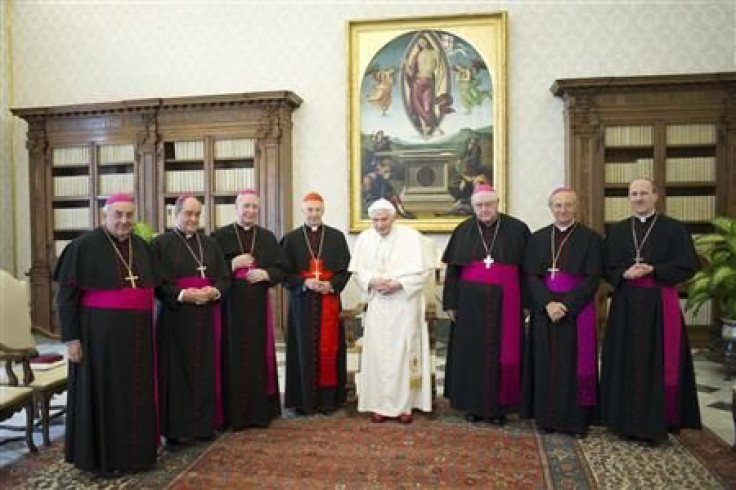Pope Benedict To Preserve Immunity, Security By Remaining In Vatican After Resignation

Despite Pope Benedict XVI’s recent announcement that he will resign from the papacy at the end of this month, he will receive both legal immunity and personal security services by continuing to reside in the Vatican, Reuters reported.
The pope’s decision to remain there would avert three potential conflicts that his relocation might have caused, according to Vatican sources cited by the news agency.
A Vatican official who spoke to Reuters on the condition of anonymity said that the most pressing of these concerns is the issue of the pope’s privacy and security, which made it “absolutely necessary” that he remain in the Vatican.
“His continued presence in the Vatican is necessary; otherwise, he might be defenseless. He wouldn’t have his immunity, his prerogatives, his security, if he is anywhere else,” the official said, adding that Benedict should have a “dignified existence.”
The official added that should the pope relocate to another country, he would have to acquaint himself with an entirely new foreign police force, whereas the Vatican police have spent the past eight years familiarizing themselves with the his habits.
“I see a big problem if he would go anywhere else. I’m thinking in terms of his personal security, his safety. We don’t have a secret service that can devote huge resources [like they do] to ex-presidents,” the official said.
In addition to security issues, Vatican officials are also reportedly worried that if the pope were to move elsewhere, his new home might become a pilgrimage site, thus providing a venue for conservatives to oppose the new papacy if they don’t approve of the new pope’s decisions.
“That would be very problematic,” one source said.
The last major concern associated with Benedict's hypothetical relocation that was mentioned by officials centered on his vulnerability to legal challenges associated with the ongoing sexual-abuse lawsuits against the Roman Catholic Church. The pope's Vatican citizenship currently protects him in these cases under the provisions of the Lateran Pacts of 1929.
The Rev. Federico Lombardi, a representative of the Vatican, said the pope "gave the fight against sexual abuse a new impulse, ensuring that new rules were put in place to prevent future abuse and to listen to victims. That was a great merit of his papacy and for that we will be grateful.”
© Copyright IBTimes 2024. All rights reserved.











